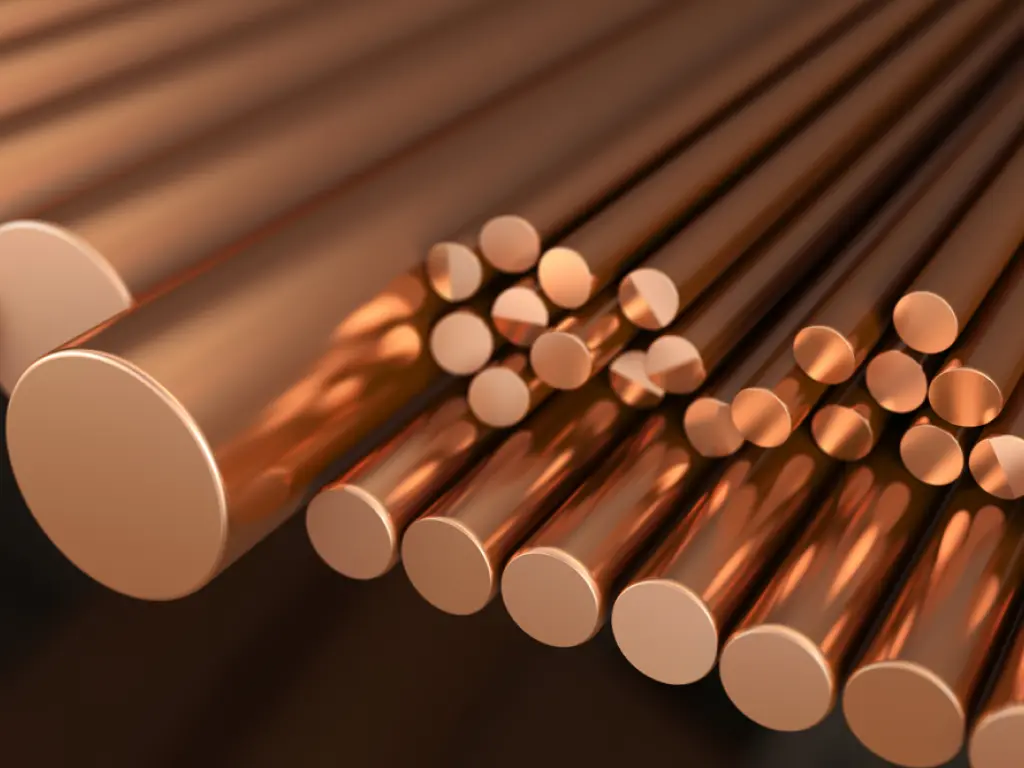The world of metals can seem complex, especially when venturing beyond the familiar iron and steel. But non-ferrous metals play a vital role in our everyday lives, from the smartphones we use to the buildings we work in. This beginner’s guide from RS Traders, a leading supplier of non-ferrous metals in India, will introduce you to these versatile materials.
What are Non-ferrous Metals?
Unlike ferrous metals that contain iron in significant amounts, non-ferrous metals have little to no iron content. This unique composition grants them a range of desirable properties:
- Lightweight: Non-ferrous metals are generally lighter than their ferrous counterparts. This makes them ideal for applications where weight reduction is a priority, such as in aerospace and transportation.
- Excellent conductivity: Many non-ferrous metals excel at conducting electricity and heat. This makes them perfect for electrical wiring, heat sinks in electronics, and components in renewable energy systems like solar panels.
- Corrosion resistance: Several non-ferrous metals naturally resist corrosion, making them suitable for use in harsh environments or applications requiring long lifespans, like marine components and building materials.
- Malleability and ductility: These metals are easily shaped and formed, allowing for a wide range of manufacturing possibilities. From intricate jewelry to complex pipes and wires, non-ferrous metals offer great flexibility.
Common Non-ferrous Metals and Their Uses
Let’s explore some of the most frequently used non-ferrous metals and their everyday applications:
- Aluminium: Lightweight, strong, and corrosion-resistant, aluminium finds use in everything from beverage cans and cookware to aircraft parts and building facades.
- Copper: Renowned for its exceptional electrical and thermal conductivity, copper is essential for electrical wiring, plumbing systems, refrigerators, and heat sinks in computers.
- Brass: An alloy of copper and zinc, brass offers a combination of strength, workability, and good corrosion resistance. You’ll find it in doorknobs, musical instruments, and decorative hardware.
- Stainless Steel: A popular choice for its superior corrosion resistance and durability, stainless steel is used in everything from kitchen appliances and medical instruments to architectural elements and food processing equipment.
Benefits of Using Non-ferrous Metals
There are several advantages to choosing non-ferrous metals over ferrous options:
- Lighter weight: As mentioned earlier, the lighter weight of non-ferrous metals can significantly improve efficiency in various applications, especially in transportation and construction.
- Enhanced performance: Their excellent conductivity makes them irreplaceable in electrical applications, while their corrosion resistance ensures long-lasting performance in harsh environments.
- Aesthetics: Certain non-ferrous metals like brass offer a unique aesthetic appeal, making them ideal for decorative purposes.
- Sustainability: Many non-ferrous metals boast high recyclability rates, minimizing environmental impact and promoting resource conservation.
RS Traders: Your One-Stop Shop for Non-ferrous Metals
At RS Traders, we are your trusted supplier for all your non-ferrous metal needs in India. We offer a vast inventory encompassing a wide variety of non-ferrous metals in different shapes, sizes, and grades. Our team of experts is happy to answer your questions and guide you in selecting the most suitable metal for your project.
Whether you’re a seasoned professional or just starting to explore the world of non-ferrous metals, RS Traders is here to help. Contact us today to learn more about our products and services!


0 Comments